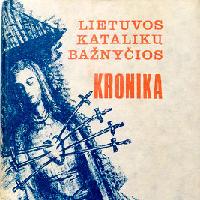The CNSAS Online Collection (CNSAS – Romanian acronym for the National Council for the Study of the Securitate Archives) illustrates how the communist secret police, the Securitate, conceptualised: (1) oppositional groups and individuals in communist Romania; (2) the forms in which this opposition manifested against the party-state; and (3) the transnational support it received from the exile community and foreign organisations. It also encompasses an impressive amount of invaluable information about the inner mechanisms of the Securitate, its institutional development and relationship with the Communist Party, the use of repression against any form of opposition, and the use of surveillance to avoid the development of oppositional groups and networks during its over forty years of functioning. In brief, this collection offers a comprehensive image of the means and methods used by the communist secret police, the Securitate, to deal with the anti-communist opposition between 1948 and 1989, and the response it received from oppositional groups and individuals.
-
Vieta:
-
București Strada Matei Basarab 55, Romania 030167
-
Temos:
-
Įkūrimo data:
-
Charakteringi eksponatai:
Pogrindyje publikuota spauda buvo gerai organizuota ir konceptualiai pagrįsta savilaidos forma. Kolekciją sudaro du pogrindžio leidiniai, tai Lietuvos katalikų bažnyčios kronika ir Rūpintojėlis. Kronika kaip pogrindžio leidinys išliko ilgiausiai, savo publikacijose pateikdama sovietų skleidžiamoms žinioms alternatyvią informaciją. Jei Kronika buvo inicijuota katalikų kunigų, tai Rūpintojėlis buvo labiau tikinčiųjų iniciatyva, kuris tapo pripažintu leidiniu dėl aukšto kultūros ir intelektualinio lygio.
Kolekciją sudaryta iškeltos šaltinių: Lietuvos ypatingajame archyve yra saugomos iš KGB paveldėti leidiniai, taip suskaitmeninti Kronikos leidiniai, patalpinti internetiniame puslapyje http://www.lkbkronika.lt.
-
Vieta:
-
Vilnius Gedimino prospektas 40, Lithuania 01400
-
Temos:
-
Įkūrimo data:
-
Charakteringi eksponatai:
The collection of the Church of the Brethren contains samizdat spiritual and religious literature, samizdat hymnals, and illegal recordings of religious music and gospel music. These include Bible editions published abroad, recordings of the Mission Youth Choir, the Kvapôčky [Droplets] Choir, bibliographical and historiographical studies, and an extensive musicological work by Juraj Potúček on the works of sisters Mária Royová and Kristína Royová.
-
Vieta:
-
Bratislava Cukrová 4, Slovakia 811 08
-
Temos:
-
Įkūrimo data:
-
Charakteringi eksponatai:
The University Library of the Catholic University (CU) in Ružomberok, more specifically in its individual libraries at the Faculty of Theology of the CU in Košice (Košice Branch of the University Library) and at the Institute of Theology of the CU in Spišská Kapitula (Spišské Podhradie Branch of the University Library), there are local and foreign samizdats on religious, intellectual, and spiritual topics, as well as hymnals of gospel music, Christian literature, and poetry. These documents are an invaluable resource concerning oppositional activities in the Catholic Church in Slovakia before 1989.
-
Vieta:
-
Spišská Kapitula 12, 053 04 Spišské Podhradie
-
Temos:
-
Įkūrimo data:
-
Charakteringi eksponatai:
Zsuzsanna Erdélyi’s collection was the outcome of an unanticipated event in socialist Hungary. The ethnographer and her colleague Sándor Bálint created a collection of objects pertaining to Catholic folk practices in the mid-1970s with the public support of Cardinal László Lékai and the Catholic press. The survival of a significant number of private religious objects during the communist era demonstratd that many citizens lived active spiritual lives and cultivated the heritage of their parents and grandparents, despite the government prohibition against religion.
-
Vieta:
-
Temos:
-
Įkūrimo data:
-
Charakteringi eksponatai:





